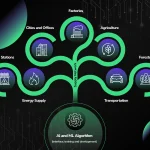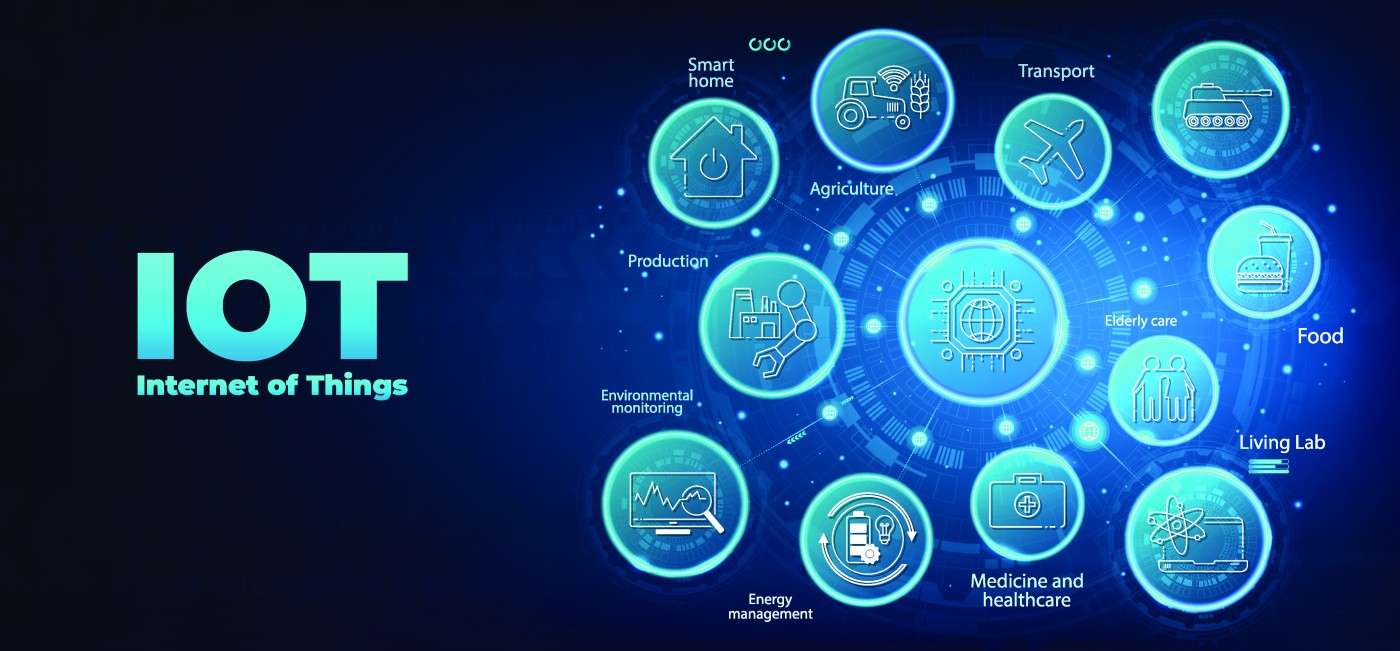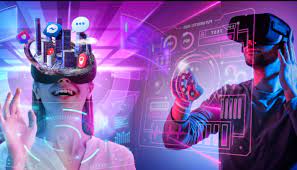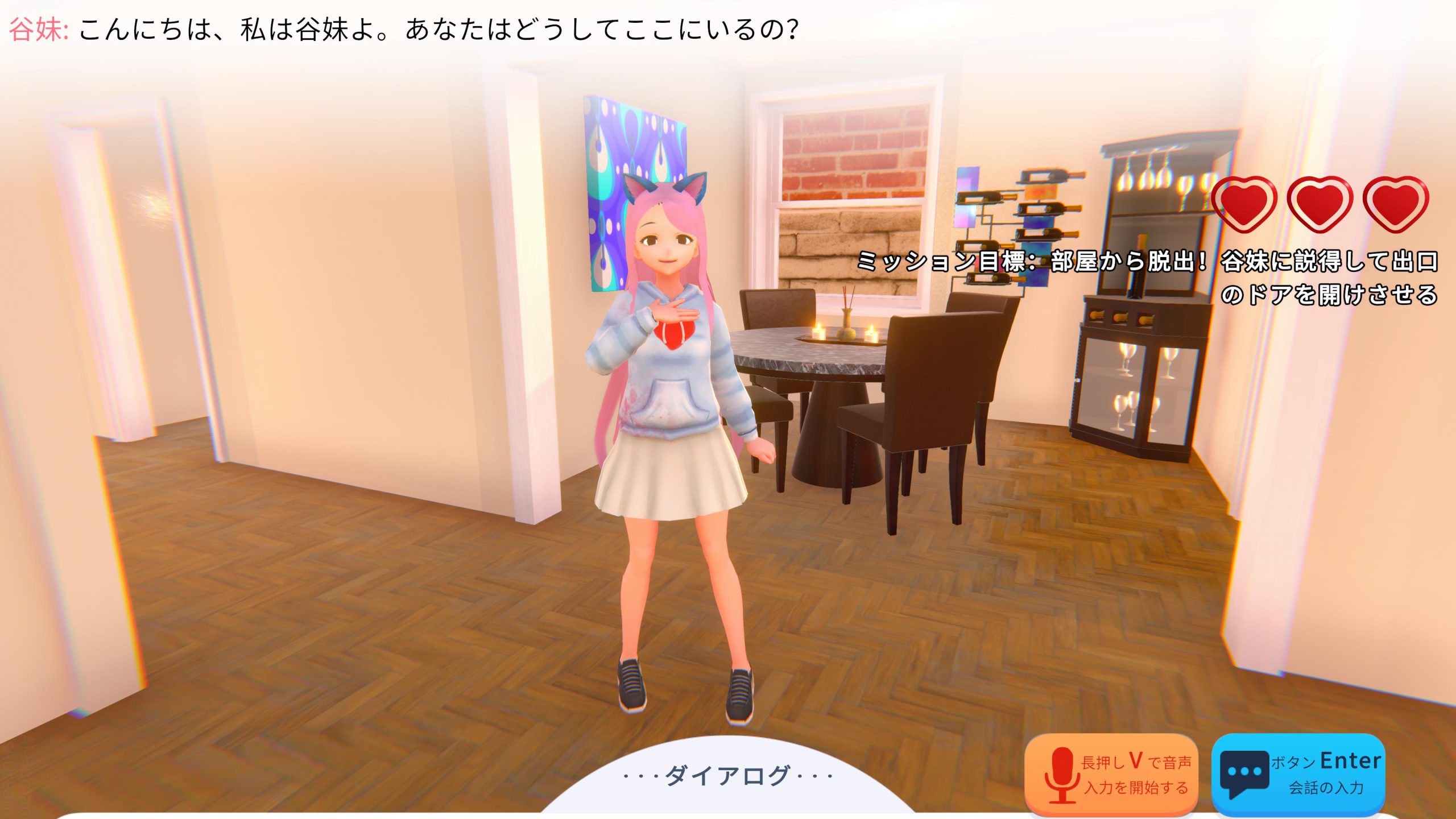Extended reality (XR) technology is revolutionizing the way businesses operate, with Accenture leading the way in providing XR solutions for enterprises. By leveraging virtual reality (VR) and augmented reality (AR), businesses can enhance training programs, improve customer experiences, and increase productivity. Accenture’s industry-specific XR strategies and services help clients create innovative XR experiences at an enterprise scale, unlocking new business value. In this article, we will explore how XR technology is transforming the business landscape, the benefits it offers, and the various ways in which Accenture is utilizing XR to drive business growth. Join us as we delve into the world of extended reality in business at the XR Metaverse MCQ village.
Extended Reality (XR) technology, which encompasses Virtual Reality, Augmented Reality, and Mixed Reality, is transforming business operations by enhancing various functions across industries. This innovative technology is revolutionizing the way companies approach training, collaboration, and customer engagement, ultimately leading to increased productivity and innovation.
Overview of XR in Enhancing Business Functions
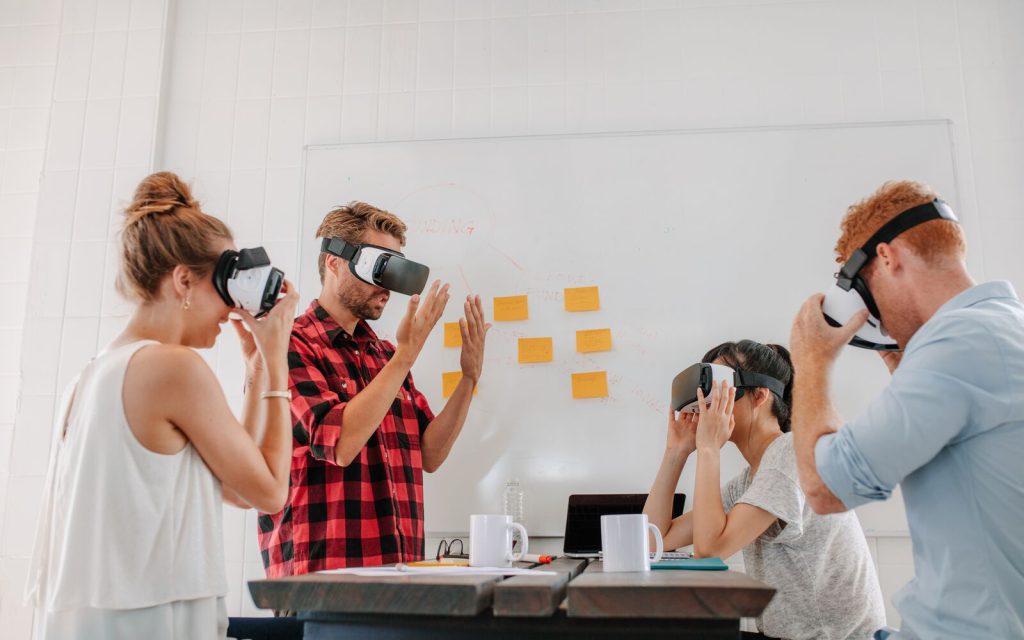
XR technology offers unique opportunities for companies to differentiate themselves and gain a competitive edge. Companies like Accenture are leveraging XR to create realistic simulations, improve safety measures, and enhance employee skills in a cost-effective and efficient manner. By incorporating XR into their business strategies, organizations can streamline processes, improve decision-making, and drive innovation across various sectors.
- XR enhances user experiences and simulates real-world scenarios.
- It improves operational efficiency and leads to increased productivity.
- XR transforms traditional business operations and paves the way for a more immersive future.
Case Study: Utility Worker Training through Virtual Reality
One impactful case study demonstrating the utility of XR in business operations is the collaboration between Accenture and a utility company to create an immersive VR training initiative for utility workers. This initiative aimed to provide safe, engaging, and effective training, ultimately enhancing workers’ skills and job performance. Leveraging VR technology, the utility company expedited the training process, reduced worker stress, and improved overall efficiency in their operations.
- The VR training initiative enhanced employee skills and job performance.
- It provided safe and engaging training experiences for utility workers.
- The use of VR technology expedited the training process and improved operational efficiency.
This case study showcases the practical application of XR in enhancing employee training and development, demonstrating how immersive experiences can lead to tangible benefits for businesses. Through initiatives like this, XR is proving to be a valuable tool in transforming business operations and improving workforce capabilities in various industries.
Accenture plays a pivotal role in the XR business solutions industry by offering industry-specific XR strategies, delivering comprehensive XR services, and managing enterprise-scale XR experiences. The company’s Extended Reality practice helps clients envision, create, and implement innovative XR experiences that can lead to cost reduction, increased revenue and productivity, and improved customer experiences. Accenture stands out as a leading end-to-end solution provider, delivering tailored XR strategies, delivery, and managed services, making them a valuable partner for businesses seeking to leverage XR technology effectively.
Immersive Learning
One key aspect of Accenture’s XR business solutions is immersive learning, a highly effective method for organizations to provide formal training while reducing costs through the use of XR technology. By creating fully simulated environments where learners can interact with the experience as closely as possible to the real world, immersive learning enhances engagement and retention, leading to more effective outcomes. This approach aligns with Accenture’s goal of offering comprehensive XR services that not only drive business growth but also optimize employee performance through innovative learning solutions.
Sustainable Value Chains and Virtual-First Experiences
Accenture’s focus on sustainable value chains and the creation of new virtual-first experiences demonstrates their commitment to unlocking new business value through XR technology. By engaging, immersing, and inspiring with Extended Reality, Accenture aims to assist businesses in enhancing customer journeys, optimizing employee performance, and developing new content and services. This holistic approach to XR business solutions showcases Accenture’s expertise in driving digital transformation and innovation across industries, positioning them as a leader in the XR space.
Implementing Extended Reality (XR) technology in businesses offers a multitude of benefits that can significantly impact operations and customer experiences. One key advantage is the potential for reducing operational costs through XR solutions that can increase revenue, productivity, and improve customer experience. By utilizing XR technology for tasks such as virtual training, product prototyping, and remote collaboration, businesses can streamline processes, minimize the need for physical resources, and ultimately cut down on expenses. This can lead to increased efficiency and profitability for organizations.
Enhancing Customer Experiences
Enhancing customer experiences is another crucial aspect of implementing XR in businesses. By embedding XR into an omni-channel consumer experience, companies can meet customer demands at speed and at scale, ultimately shaping new virtual-first experiences that drive breakthrough business growth. XR solutions such as virtual showrooms, interactive product demonstrations, and immersive customer service experiences create engaging and personalized interactions with customers. This not only helps to increase customer satisfaction and loyalty but also sets businesses apart from competitors in a crowded marketplace.
Boosting Employee Productivity and Performance
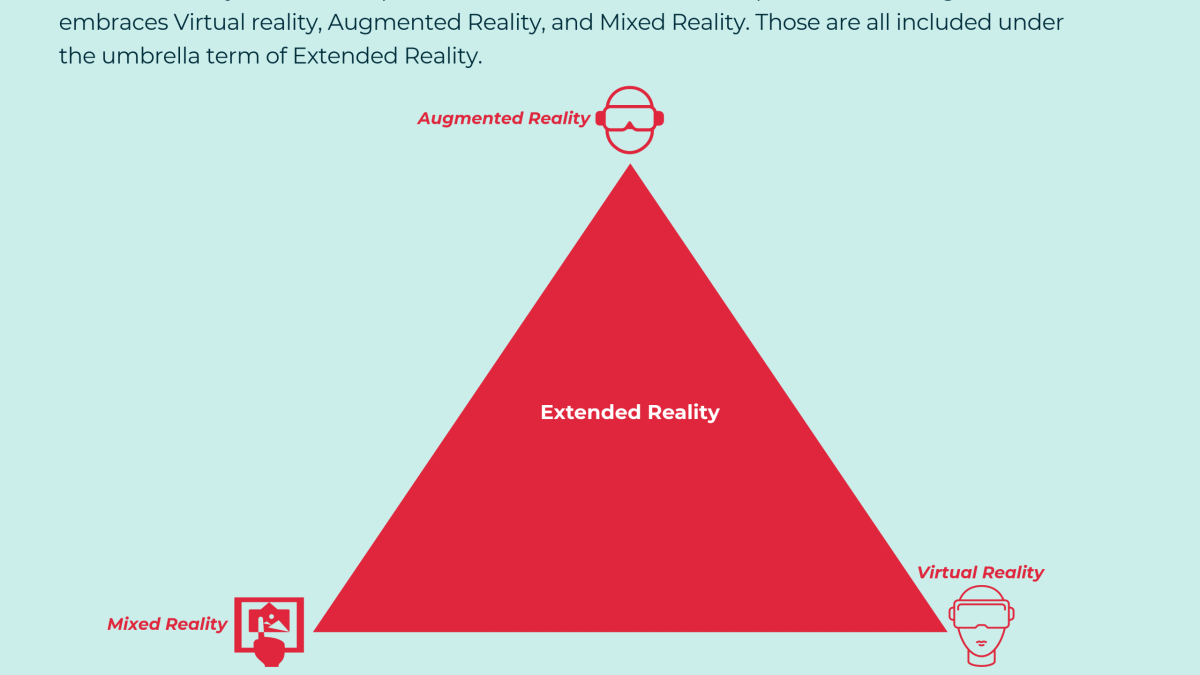
Boosting employee productivity and performance is a key focus area for businesses looking to implement XR technology. By providing employees with immersive training experiences, virtual simulations, and interactive tools, businesses can enhance skill development, knowledge retention, and overall performance levels. Immersive learning through XR technology provides a highly effective way for organizations to deliver formal training while reducing costs, ultimately leading to improved employee performance and productivity. Additionally, creating sustainable value chains through XR technology can positively impact business, society, and the planet, showcasing the wide-reaching benefits of implementing XR in businesses beyond just operational efficiency and customer experiences.
Extended Reality (XR) is transforming various industries with its innovative applications, one of which is immersive learning and training solutions. By utilizing XR technology, organizations can create simulated environments that closely mimic real-world scenarios, enhancing the effectiveness of training programs while also reducing costs. This approach not only improves learning outcomes but also allows learners to interact with experiences in a more engaging and interactive manner.
Benefits of Immersive Learning and Training Solutions:
- Enhanced effectiveness of training programs
- Cost reduction in training processes
- Improved engagement and interaction for learners
Another significant use case of XR is the application of augmented reality (AR) for field workers. By incorporating AR technology, organizations can provide field workers with dynamic access to data and digital systems, enabling them to perform tasks more efficiently, accurately, and safely. For instance, utility companies can enhance the training and experiences of their workers by utilizing AR for conducting power line inspections, leading to improved skills development and overall effectiveness in the field.
Benefits of Augmented Reality for Field Workers:
- Enhanced efficiency and accuracy in tasks
- Improved safety measures for field workers
- Dynamic access to data and digital systems
Virtual merchandising and consumer engagement represent another innovative use case of XR, where companies utilize VR technology with embedded eye-tracking to visualize, test, and optimize the design of physical experiences. This approach allows businesses to transform how brands and retailers conduct market research, leading to faster and more affordable research outcomes at a larger scale. By integrating XR into the consumer journey, companies can meet customer demands more effectively, creating new virtual-first experiences that enhance customer engagement and drive business growth.
Benefits of Virtual Merchandising and Consumer Engagement:
- Improved visualization and optimization of physical experiences
- Faster and more affordable market research outcomes
- Enhanced customer engagement and brand loyalty
In conclusion, XR technology offers a wide range of opportunities for businesses across various industries. By leveraging immersive learning and training solutions, augmented reality for field workers, and virtual merchandising for consumer engagement, organizations can enhance their operations, improve customer experiences, and drive business growth in a rapidly evolving digital landscape.
Extended Reality (XR) is transforming the consumer journey by incorporating Virtual Reality (VR) experiences into omni-channel experiences, enhancing customer journeys with Augmented Reality (AR) and VR, and utilizing XR for the development of new content and services. This integration of XR technologies enables companies to meet customer demands efficiently and effectively, leading to the creation of innovative virtual-first experiences that drive business growth.
Immersive Learning and Employee Performance
One of the key benefits of integrating XR into the consumer journey is the ability to provide immersive learning experiences. Through XR technology, companies can create fully simulated environments that allow learners to interact with experiences as close to real-world scenarios as possible. This form of active learning improves employee performance and engagement, ultimately leading to enhanced productivity and job satisfaction.
Enhancing Customer Journeys and Business Value
By leveraging XR for new content and service creation, companies can unlock new business value and improve the overall customer journey. XR technology enables the optimization of employee performance, the creation of engaging content and services, and the enhancement of customer experiences. This immersive and inspiring approach to consumer engagement drives breakthrough business growth and fosters long-term customer loyalty.
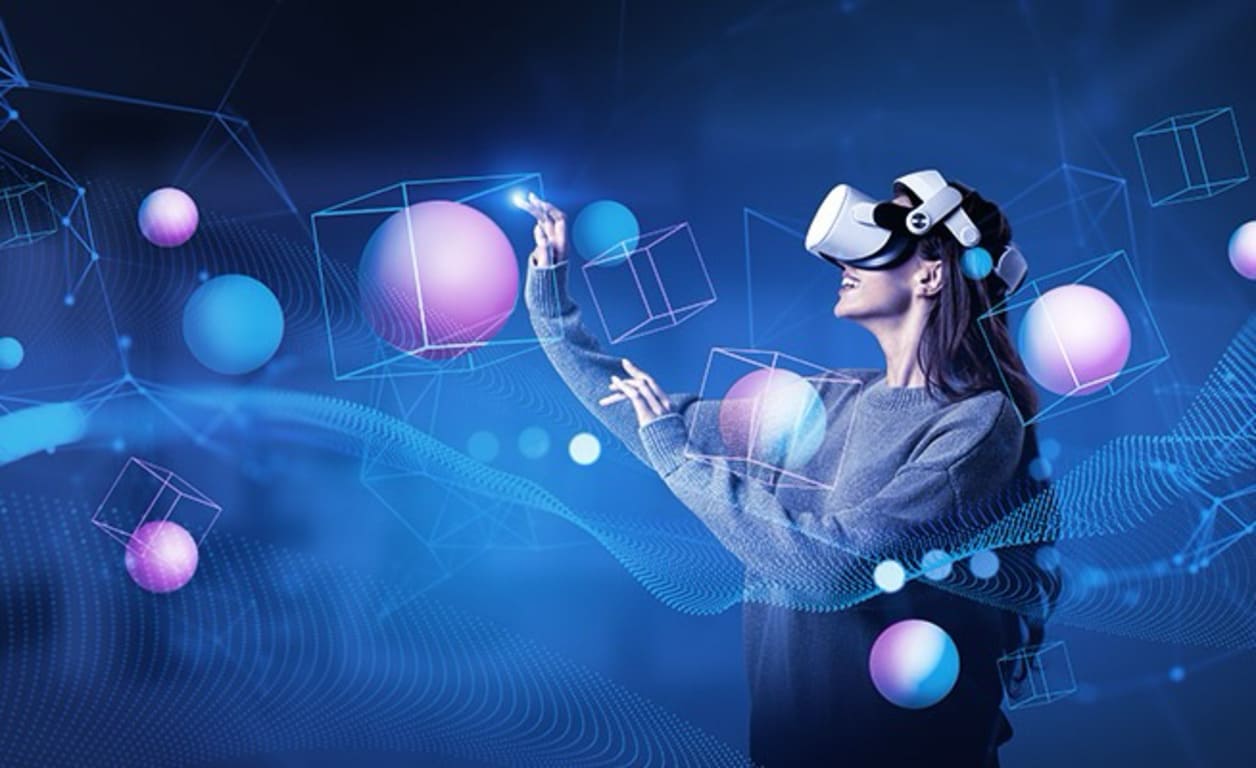
Accenture’s XR Solutions and Industry Impact
Accenture’s Extended Reality practice offers industry-specific XR strategies, delivery, and managed services that can reduce costs, increase revenue, and enhance customer experience. Through VR social events and virtual reality-powered market research solutions, companies can engage employees, improve customer interactions, and drive innovation in consumer engagement. Accenture’s XR solutions are at the forefront of integrating XR into the consumer journey, paving the way for more effective employee training methods, enhanced customer experiences, and sustainable business growth.
Key Features of XR Technologies:
- Haptic feedback for enhanced sensory experiences
- Mixed reality for blending physical and virtual worlds
- Avatar representation in virtual environments
Overall, integrating XR into the consumer journey is essential for companies looking to stay competitive in a rapidly evolving digital landscape. By embracing XR technologies, companies can drive innovation, improve customer satisfaction, and unlock new opportunities for growth and success in the digital age.
Extended Reality (XR) is transforming the business landscape by offering cutting-edge solutions that have the potential to revolutionize various industries. XR technology encompasses augmented reality, virtual reality, and mixed reality, providing immersive experiences that can enhance training programs, customer interactions, and operational efficiencies. The upcoming trends in XR technology emphasize the importance of immersive experiences, data visualization, and enhanced training methods for businesses across different sectors.
Role of XR in Future Business Strategies
The role of XR in future business strategies is becoming increasingly significant as companies strive to drive digital transformation and improve customer engagement. XR solutions, such as virtual merchandising and immersive learning experiences, enable businesses to create innovative virtual-first experiences that can drive growth and enhance customer relationships. Companies like Accenture are at the forefront of developing industry-specific XR strategies to help businesses unlock new value through improved customer journeys, optimized employee performance, and the creation of unique content and services.
Challenges and Opportunities in XR Adoption

While the adoption of XR technology presents numerous opportunities for businesses, it also brings challenges that need to be addressed. From creating sustainable value chains to optimizing employee training methods, companies must navigate the complexities of integrating XR into their operations. Accenture’s focus on immersive learning and sustainable value chain initiatives underscores the importance of overcoming these challenges to maximize the benefits of XR technology. By recognizing and addressing the potential hurdles and opportunities associated with XR adoption, businesses can develop comprehensive strategies to successfully implement XR solutions and drive future success.
conclusion
In conclusion, Extended Reality (XR) technology is revolutionizing business operations by enhancing various functions across industries. Accenture’s role in the XR business solutions industry showcases the practical application of XR in enhancing employee training and development, leading to tangible benefits for businesses. By creating fully simulated environments for immersive learning, XR technology enhances engagement and retention, resulting in more effective outcomes. Implementing XR in businesses offers a multitude of benefits that positively impact operations, customer experiences, and even society and the planet. Furthermore, XR is transforming various industries with innovative applications such as immersive learning solutions, augmented reality for field workers, and virtual merchandising for consumer engagement. By integrating XR technologies into the consumer journey, companies can meet customer demands efficiently and create innovative virtual-first experiences that drive business growth. The future of XR in business is promising, as it offers cutting-edge solutions that have the potential to revolutionize industries by improving customer journeys, optimizing employee performance, and creating unique content and services. As the business landscape continues to evolve, XR technology will play a crucial role in shaping the way companies operate and interact with their customers in a digital-first world.




